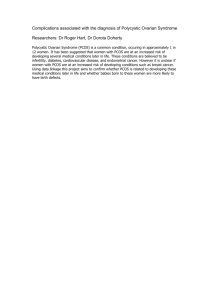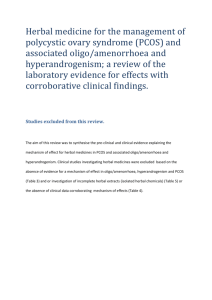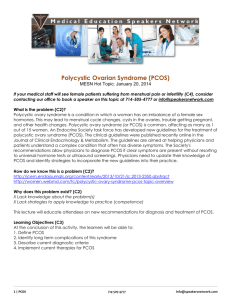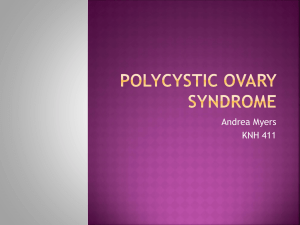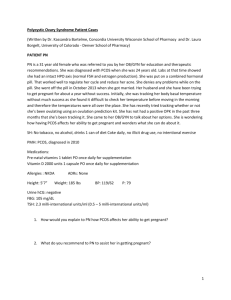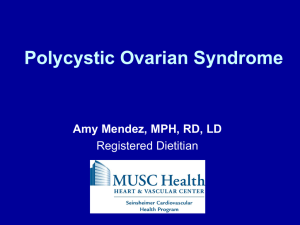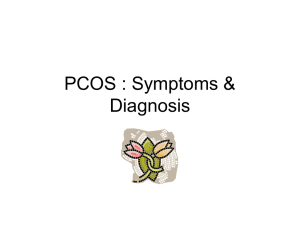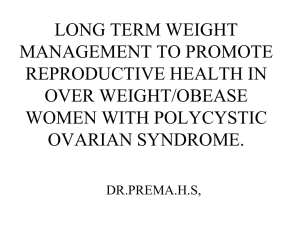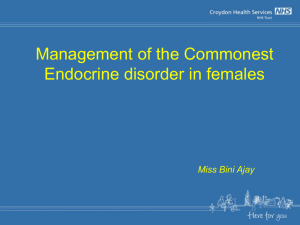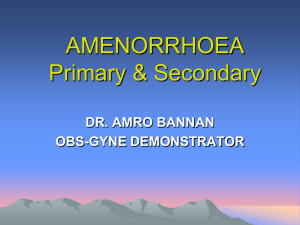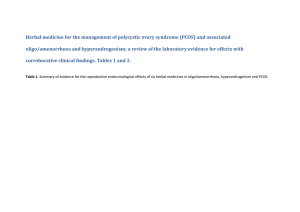Table 3. Herbal medicines with clinical evidence not included in this
advertisement
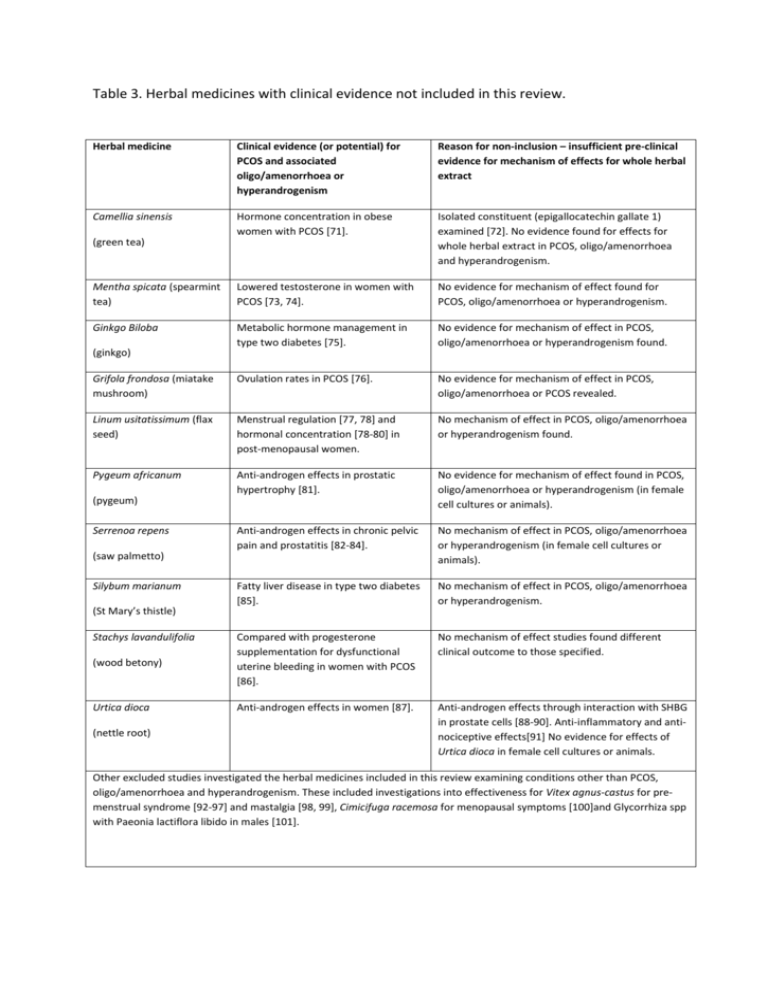
Table 3. Herbal medicines with clinical evidence not included in this review. Herbal medicine Clinical evidence (or potential) for PCOS and associated oligo/amenorrhoea or hyperandrogenism Reason for non-inclusion – insufficient pre-clinical evidence for mechanism of effects for whole herbal extract Camellia sinensis Hormone concentration in obese women with PCOS [71]. Isolated constituent (epigallocatechin gallate 1) examined [72]. No evidence found for effects for whole herbal extract in PCOS, oligo/amenorrhoea and hyperandrogenism. Mentha spicata (spearmint tea) Lowered testosterone in women with PCOS [73, 74]. No evidence for mechanism of effect found for PCOS, oligo/amenorrhoea or hyperandrogenism. Ginkgo Biloba Metabolic hormone management in type two diabetes [75]. No evidence for mechanism of effect in PCOS, oligo/amenorrhoea or hyperandrogenism found. Grifola frondosa (miatake mushroom) Ovulation rates in PCOS [76]. No evidence for mechanism of effect in PCOS, oligo/amenorrhoea or PCOS revealed. Linum usitatissimum (flax seed) Menstrual regulation [77, 78] and hormonal concentration [78-80] in post-menopausal women. No mechanism of effect in PCOS, oligo/amenorrhoea or hyperandrogenism found. Pygeum africanum Anti-androgen effects in prostatic hypertrophy [81]. No evidence for mechanism of effect found in PCOS, oligo/amenorrhoea or hyperandrogenism (in female cell cultures or animals). Anti-androgen effects in chronic pelvic pain and prostatitis [82-84]. No mechanism of effect in PCOS, oligo/amenorrhoea or hyperandrogenism (in female cell cultures or animals). Fatty liver disease in type two diabetes [85]. No mechanism of effect in PCOS, oligo/amenorrhoea or hyperandrogenism. No mechanism of effect studies found different clinical outcome to those specified. (wood betony) Compared with progesterone supplementation for dysfunctional uterine bleeding in women with PCOS [86]. Urtica dioca Anti-androgen effects in women [87]. Anti-androgen effects through interaction with SHBG in prostate cells [88-90]. Anti-inflammatory and antinociceptive effects[91] No evidence for effects of Urtica dioca in female cell cultures or animals. (green tea) (ginkgo) (pygeum) Serrenoa repens (saw palmetto) Silybum marianum (St Mary’s thistle) Stachys lavandulifolia (nettle root) Other excluded studies investigated the herbal medicines included in this review examining conditions other than PCOS, oligo/amenorrhoea and hyperandrogenism. These included investigations into effectiveness for Vitex agnus-castus for premenstrual syndrome [92-97] and mastalgia [98, 99], Cimicifuga racemosa for menopausal symptoms [100]and Glycorrhiza spp with Paeonia lactiflora libido in males [101]. Table 4 Herbal medicines with pre-clinical evidence not included in this review Herbal medicine Pre-clinical evidence for (potential) effects in reproductive endocrinology in PCOS and associated oligo/amenorrhoea and hyperandrogenism Reason for exclusion Curcuma longa (turmeric) Anti-androgen effects [102]. No clinical evidence examining effectiveness in women was found. Matricaria chamomilla (Chamomile) Reduced luteinising hormone and improved ovarian morphology in animals with PCOS [103]. No clinical data found. Mentha piperita Anti-androgen effects in animals [104]. No clinical data for women. Anti-proliferative antioxidant and biochemical effects in the liver [105]. No clinical evidence including women was found. (peppermint) Silybum marianum (St Marys thistle Studies investigating chemical compounds derived from the herbal medicines, included in this review but investigating different outcomes were found for Vitex agnus-castus [70] and Cimicifuga racemosa [106]. Table 5. Chemicals derived from herbal medicines not included in this review Isolated chemicals Evidence for effects Phytoestrogens Hormonal effects in ovarian granulosa cells [107]. Berberine Comparison with metformin in PCOS [16]; ovarian theca cell hormone production [108]. Catechin derived from Camellia sinensis Effects of epigallocatechin gallate 1 on cellular metabolic endocrinology [72]. Sapponins derived from Tribulus terrestris Effects on reproductive endocrinology [109]. Paeoniflorin, glycyrrhizin and glycyrrhetic acid Ovarian androgen production [110]. Isoflavones isolated from Vitex agnus-castus Selective oestrogen receptor activity (competitive inhibition via beta oestrogen receptors) [111].
